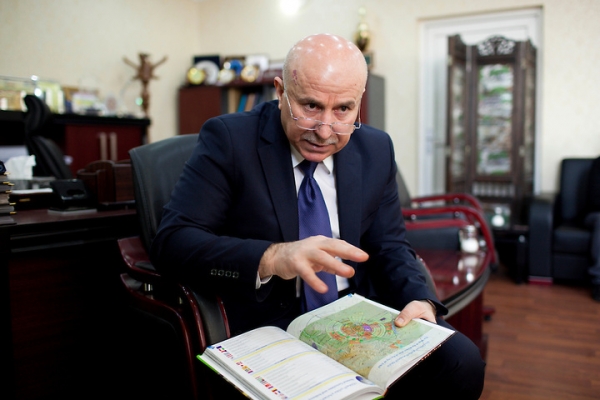Erbil, Kurdistan Region, Iraq (cabinet.gov.krd) - Erbil Governor, Nawzad Hadi, denied that accommodating the large number of internally displaced persons, IDPs, and refugees poses a security threat to the Kurdistan Region.
In an interview with Kurdistan Regional Government, KRG, website, the Governor of Erbil said, “The security officials have been examining security challenges, and terrorist acts and crimes committed in the past. Based on the cases investigated that have been referred to the courts, none were linked to IDPs.”
He stressed that “IDPs and refugees are in need for more assistance, and that they are not linked to security issues. Erbil is safe and secure, and there is no significant security concern.”
Erbil Governor denied allegations, suggesting that the presence of IDPs and refugees in Erbil may lead to security issues.
The Kurdistan Regional Government works closely with local and international organisations to provide basic necessities to refugees and internally displaced persons, who have been threatened by the Islamic State terrorist organisation, ISIS and have sought safety in the Kurdistan Region.
Nawzad Hadi said the presence of the IDPs in the Kurdistan Region is temporary as the international coalition against ISIS is working to liberate areas currently under the control of terrorists.
He reiterated that accommodating and offering assistance to IDPs and refugees in the Kurdistan Region is a humanitarian act that has been acknowledged and appreciated by the international community.
Dibagah Camp
Speaking last week at the opening of Dibagah IDP camp, built by the Emirates Red Crescent, Erbil Governor said, this camp, which comprises one thousand units, is for IDPs from Makhmour District.
The camp includes Kurds and the Arabs mainly from Sultan Abdulla and nearby villages captured by ISIS. Some Arab citizens accommodated in the Dibaga camp are fighting ISIS alongside Peshmerga forces.
Erbil Governor said, “With the assistance of UN Agencies, the KRG has allocated a special budget for IDPs. The Dibagah camp is not the only project implemented by the Emirates Red Crescent. There are other projects including a camp in Bahraka District, and several other food and water distribution programs for IDPs.”
An estimated 1.8 million displaced people, mainly from Anbar and Mosul, including close to 250,000 Syrian refugees fled to the Kurdistan Region. This huge displacement occurred after the Syrian civil war began in 2011 and especially when ISIS overran a large part of Iraqi territory in 2014.

